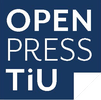On Knowing What One Really Wants: Emotions, Valuing, and Substantial Self-Knowledge
DOI:
https://doi.org/10.59123/a581t849Keywords:
substantial self-knowledge, engaged self-knowledge, emotional insight, desires, valuing, imagination, emotionsAbstract
The contribution of emotions to our knowledge of ourselves remains undertheorized in the philosophical literature on self-knowledge, even among authors who focus on ‘substantial’ self-knowledge. This is a shortcoming because emotions are crucial to obtain the sort of self-knowledge that can play a transformative role in our lives (or engaged self-knowledge). To show this, here I rework Krista Lawlor’s (2009) example of Katherine, a woman who is wondering whether she wants a second child. Lawlor offers and empiricist account of substantial self-knowledge, where purely epistemic self-knowledge, gained through introspection and inference, is enough to satisfy Katherine and “stick” (i.e., halt her investigation). While Lawlor conceives sticking as a mere absence of the motivation to investigate further, in my analysis sticking is an affective phenomenon that involves the epistemic emotion of certainty based on emotional insight, i.e. the right evaluative responses to what one knows. But achieving emotional insight in cases of opaque substantial self-knowledge is not easy. Here, I go beyond Lawlor by proposing that investigating what we value through an imaginative exploration of our emotions and other evaluative attitudes is a particularly promising route.
Downloads
References
Bell, David, and Adam Leite. 2016. “Experiential Self‐understanding.” The International Journal of Psychoanalysis 97 (2): 305–32. https://doi.org/10.1111/1745-8315.12365.
Boyle, Matthew. 2015. “Critical Study: Cassam on Self-Knowledge for Humans.” European Journal of Philosophy 23 (2): 337–48. https://doi.org/10.1111/ejop.12117.
Brady, Michael S. 2013. Emotional Insight: The Epistemic Role of Emotional Experience. Oxford University Press. http://www.oxfordscholarship.com/view/10.1093/acprof:oso/9780199685523.001.0001/acprof-9780199685523.
Bratman, Michael. 2014. Shared Agency: A Planning Theory of Acting Together. Oxford, New York: Oxford University Press.
Britton, Ronald. 1998. “The Suspension of Belief and the ‘as-If’ Syndrome.” In Belief and Imagination. Routledge.
Callard, Agnes. 2018. Aspiration: The Agency of Becoming. New York: Oxford University Press. https://doi.org/10.1093/oso/9780190639488.001.0001.
Candiotto, Laura. 2019. The Value of Emotions for Knowledge. Palgrave Macmillan. https://link.springer.com/book/10.1007/978-3-030-15667-1.
Casey, Edward S. 2000. Imagining: A Phenomenological Study. Second Edition. Bloomington: Indiana University Press.
Cassam, Quassim. 2014. Self-Knowledge for Humans. Oxford, New York: Oxford University Press.
Corbí, Josep E. 2023. “Distinctive Substantial Self-Knowledge and the Possibility of Self-Improvement.” Synthese 201 (6): 201. https://doi.org/10.1007/s11229-023-04195-2.
Gertler, Brie. 2018. “Self-Knowledge and Rational Agency: A Defense of Empiricism.” Philosophy and Phenomenological Research 96 (1): 91–109. https://doi.org/10.1111/phpr.12288.
Gilbert, Margaret. 2013. Joint Commitment: How We Make the Social World. New York: Oxford University Press. https://doi.org/10.1093/acprof:oso/9780199970148.001.0001.
Goldie, Peter. 2012. The Mess Inside: Narrative, Emotion, and the Mind. Oxford: Oxford University Press.
Helm, Bennett W. 2001. Emotional Reason. Deliberation, Motivation, and the Nature of Value. Cambridge: Cambridge University Press. /ebook.jsf?bid=CBO9780511520044.
Jongepier, Fleur. 2021. “The Value of Transparent Self-Knowledge.” Ethical Theory and Moral Practice 24 (1): 65–86. https://doi.org/10.1007/s10677-020-10118-8.
Lawlor, Krista. 2009. “Knowing What One Wants.” Philosophy and Phenomenological Research 79 (1): 47–75. https://doi.org/10.1111/j.1933-1592.2009.00266.x.
Levine, Howard. 2011. “‘The Consolation Which Is Drawn from Truth’: The Analysis of a Patient Unable to Suffer Experience.” In Bion Today, edited by Chris Mawson. Routledge.
Moran, Richard. 2002. Authority and Estrangement: An Essay on Self-Knowledge. Princeton: Princeton University Press.
Morton, Adam. 2009. “Epistemic Emotions.” In The Oxford Handbook of Philosophy of Emotion, edited by Peter Goldie, 0. Oxford University Press. https://doi.org/10.1093/oxfordhb/9780199235018.003.0018.
Nguyen, C. Thi. 2021. “The Seductions of Clarity.” Royal Institute of Philosophy Supplements 89 (May): 227–55. https://doi.org/10.1017/S1358246121000035.
Paul, L. A. 2014. Transformative Experience. Oxford University Press. https://oxford.universitypressscholarship.com/view/10.1093/acprof:oso/9780198717959.001.0001/acprof-9780198717959.
Prinz, Jesse J., and Shaun B. Nichols. 2016. “Diachronic Identity and the Moral Self.” The Routledge Handbook of Philosophy of the Social Mind, January, 449–64. https://doi.org/10.4324/9781315530178.
Pugmire, David. 2005. Sound Sentiments. Oxford: Oxford University Press. http://oxfordindex.oup.com/view/10.1093/0199276897.001.0001, //oxfordindex.oup.com/view/10.1093/0199276897.001.0001.
Renz, Ursula. 2017. “Socratic Self-Knowledge in Early Modern Philosophy.” In Self-Knowledge: A History, edited by Ursula Renz. Oxford: Oxford University Press. https://oxford.universitypressscholarship.com/view/10.1093/acprof:oso/9780190226411.001.0001/acprof-9780190226411-chapter-10.
Sartre, Jean-Paul. 1986. L’imaginaire ; psychologie phénoménologique de l’imagination. Paris: Gallimard. https://www.librairie-gallimard.com/livre/9782070323746-l-imaginaire-psychologie-phenomenologique-de-l-imagination-jean-paul-sartre/.
Scarantino, Andrea, and Ronald de Sousa. 2021. “Emotion.” In The Stanford Encyclopedia of Philosophy, edited by Edward N. Zalta, Summer 2021. Metaphysics Research Lab, Stanford University. https://plato.stanford.edu/archives/sum2021/entries/emotion/.
Scheffler, Samuel. 2011. “Valuing.” In Reasons and Recognition: Essays on the Philosophy of T.M. Scanlon, edited by R. Jay Wallace, Rahul Kumar, and Samuel Freeman, 23–42. Oxford University Press. https://doi.org/10.1093/acprof:oso/9780199753673.003.0002.
Schroeder, Tim. 2020. “Desire.” In The Stanford Encyclopedia of Philosophy, edited by Edward N. Zalta, Summer 2020. Metaphysics Research Lab, Stanford University. https://plato.stanford.edu/archives/sum2020/entries/desire/.
Sorgiovanni, Ben. 2019. “The Agential Point of View.” Pacific Philosophical Quarterly 100 (2): 549–72. https://doi.org/10.1111/papq.12263.
Sousa, Ronald de. 2008. “Epistemic Feelings.” In Epistemology and Emotions. Routledge.
Szanto, Thomas. 2017. “Collective Imagination: A Normative Account”. In Imagination and Social Perspectives. Routledge.
Thomason, Krista K. 2023. “Alienated Emotions and Self-Knowledge.” In Emotional Self-Knowledge, edited by Alba Montes Sánchez and Alessandro Salice. Routledge.
Tooming, Uku. 2020. “Being Familiar with What One Wants.” Pacific Philosophical Quarterly 101 (4): 690–710. https://doi.org/10.1111/papq.12327.
Tooming, Uku, and Miyazono. 2023. “Affective Forecasting and Substantial Self-Knowledge.” In Emotional Self-Knowledge, edited by Alba Montes Sánchez and Alessandro Salice, 17–38. London ; New York: Routledge.
Wilson, Timothy D. 2004. Strangers to Ourselves: Discovering the Adaptive Unconscious. Cambridge, Mass London: Belknap Press of Harvard University Press.
Downloads
Published
Issue
Section
License
Copyright (c) 2025 Alba Montes Sanchez

This work is licensed under a Creative Commons Attribution 4.0 International License.


